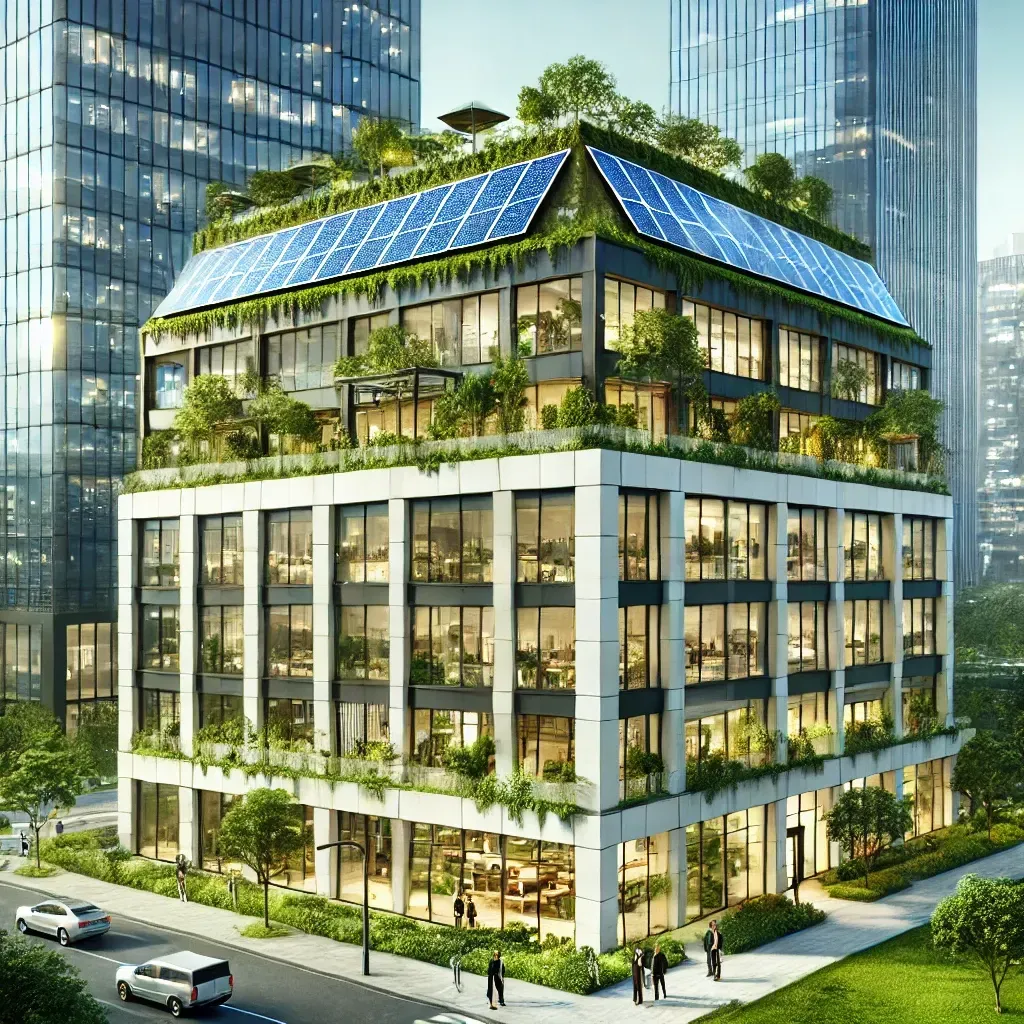Surveying Texas Since 1980 Family Owned, Customer Devoted | Firm #10045400 | 281-556-6918
See Our Latest Blogs

Embracing Sustainability in Commercial Real Estate Development
"Sustainability has become a critical focus in the commercial real estate industry." - Chris Evans
Embracing Sustainability in Commercial Real Estate Development
Sustainability has become a critical focus in the commercial real estate industry. As concerns about climate change and environmental impact grow, developers and investors are increasingly prioritizing sustainable practices. In this blog, we'll explore the importance of sustainability in commercial real estate development, the benefits it offers, and the strategies you can implement to embrace eco-friendly practices.
The Importance of Sustainability in Commercial Real Estate
Sustainability in commercial real estate involves adopting practices that reduce environmental impact, conserve resources, and create healthier spaces for occupants. The growing emphasis on sustainability is driven by several factors:
Environmental Concerns: With climate change posing significant risks, there is a pressing need to reduce greenhouse gas emissions and minimize the environmental footprint of buildings.
Regulatory Requirements: Governments and local authorities are implementing stricter regulations and incentives to promote sustainable development.
Market Demand: Tenants and investors are increasingly seeking eco-friendly buildings, recognizing the long-term benefits of sustainable properties.
Benefits of Sustainable Commercial Real Estate Development
Embracing sustainability in commercial real estate development offers numerous benefits that extend beyond environmental stewardship. One of the primary advantages is cost savings. Sustainable buildings often feature energy-efficient systems, which reduce utility costs. Investments in renewable energy sources like solar panels can further lower operating expenses, providing significant financial benefits over the life of the building.
Cost Savings: Energy-efficient systems reduce utility costs, and renewable energy sources lower operating expenses.
Increased Property Value: Sustainable properties tend to have higher market values and attract premium tenants.
Enhanced Tenant Satisfaction: Eco-friendly buildings provide healthier indoor environments, improving tenant comfort and productivity. Features such as improved air quality and natural lighting contribute to occupant well-being.
Regulatory Compliance: Sustainable practices help developers comply with environmental regulations and qualify for green building certifications like LEED (Leadership in Energy and Environmental Design), enhancing the property’s marketability.
Key Strategies for Sustainable Development
To achieve sustainability in commercial real estate development, consider implementing the following strategies:
Energy Efficiency
Energy efficiency is a cornerstone of sustainable development. Implementing energy-efficient systems and practices can significantly reduce a building's carbon footprint. Investing in high-efficiency heating, ventilation, and air conditioning (HVAC) systems is crucial to minimize energy consumption. Using energy-efficient lighting solutions, such as LED bulbs, and incorporating natural lighting wherever possible can also contribute to significant energy savings. Ensuring proper insulation in the building envelope helps reduce heating and cooling demands, enhancing overall energy efficiency.
Renewable Energy
Integrating renewable energy sources into commercial properties can further enhance sustainability. Installing solar panels on rooftops or other suitable areas can generate clean, renewable energy, reducing reliance on fossil fuels and lowering energy costs. Wind turbines and geothermal systems are other viable options for harnessing renewable energy. By incorporating these technologies, commercial properties can achieve a higher degree of energy independence and sustainability.
Water Conservation
Water conservation is another critical aspect of sustainable development. Implementing water-efficient fixtures and systems can significantly reduce water consumption. Using low-flow faucets, toilets, and showerheads, as well as installing rainwater harvesting systems, can help conserve water resources. Additionally, incorporating drought-resistant landscaping and efficient irrigation systems can minimize water usage in outdoor areas, contributing to overall sustainability.
Sustainable Materials and Construction Practices
Choosing sustainable materials and construction practices is essential for minimizing the environmental impact of commercial real estate development. Using recycled and locally sourced materials reduces the demand for new resources and lowers transportation emissions. Employing construction practices that minimize waste and pollution, such as modular construction and off-site fabrication, can further enhance sustainability. Ensuring that materials used in construction are non-toxic and have low environmental impact contributes to healthier indoor environments.
Smart Building Technologies
Incorporating smart building technologies can enhance the sustainability and efficiency of commercial properties. Building automation systems that control lighting, HVAC, and security systems can optimize energy use and improve operational efficiency. Smart meters and energy management systems provide real-time data on energy consumption, enabling proactive management and identifying opportunities for further energy savings. These technologies not only enhance sustainability but also improve the overall performance and functionality of commercial buildings.
Embracing sustainability in commercial real estate development is not only an environmental imperative but also a strategic advantage. By adopting energy-efficient systems, integrating renewable energy sources, conserving water, using sustainable materials, and incorporating smart building technologies, developers and investors can create eco-friendly properties that offer significant financial, environmental, and social benefits. As the demand for sustainable buildings continues to grow, those who prioritize sustainability will be well-positioned to succeed in the evolving commercial real estate market.
Delivering Land Surveys with Attention to Detail
George Owens
Commercial Broker

I have worked with many surveying companies, but South Texas Surveying stands out for their exceptional professionalism, attention to detail, and commitment to their clients.
Kim Wexler
Project Manager

Their accurate and thorough surveys make my job a lot easier, their ability to communicate effectively with all parties involved is commendable. I highly recommend South Texas Surveying.
James Cart
Homeowner

As a new homeowner, I was thoroughly impressed with the professional service provided by South Texas Surveying. I high recommend their services to any one buying a home in Houston.
Contact Us
Email: [email protected]
Office Address: 11281 Richmond Ave
BLDG J, Suite 101,
Houston, TX 77082
Office Hours: Mon – Fri 8:00am – 5:00pm
Office Phone Number: 281-556-6918
11281 Richmond Ave
BLDG J, Suite 101,
Houston, TX 77082
Firm Number: 10045400
Resources
© Copyright 2024 South Texas Surveying Associates
